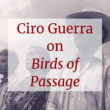Orla wraps up her time at the 2019 Glasgow Film Festival by spotlighting three of the best films that screened there: Diane, Pause, and We are the weirdos.
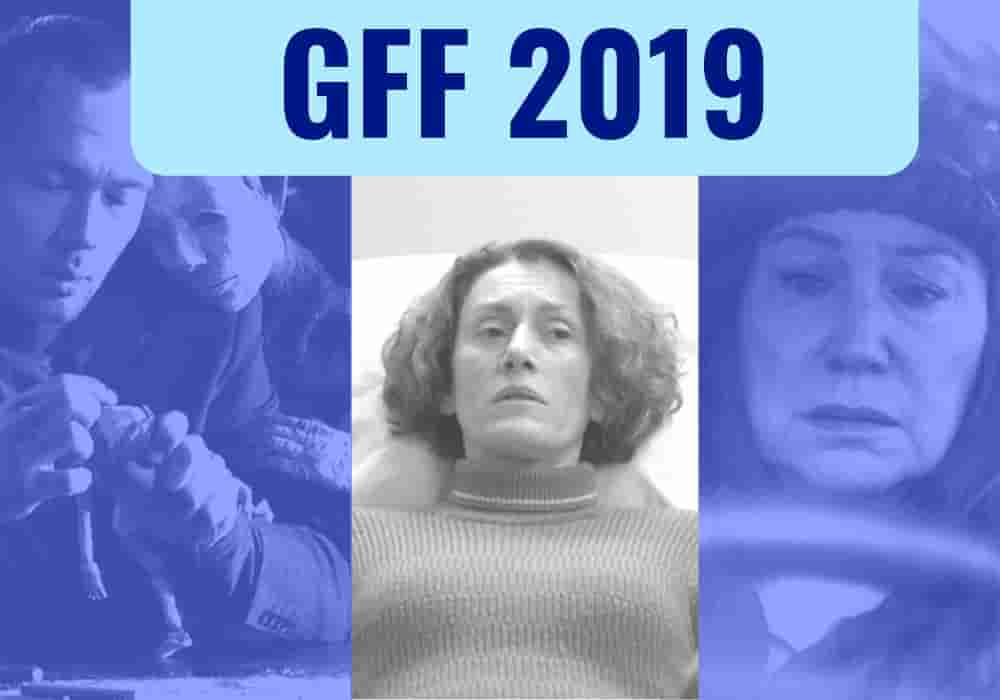
Discovering great films at a smaller film festival is a harder but far more satisfying experience than it is at a larger one. There’s a lot to trudge through, but when you happen upon something great, it really feels like unearthing rare treasure.
This was my second year covering the Glasgow Film Festival, which is one such smaller festival. GFF tends to host the UK premiere of several highly anticipated early-year releases (Under the Silver Lake, Fighting with My Family, Eighth Grade), as well as a bunch of talked about titles that have already screened at LFF (Ray & Liz, Border, Thunder Road). But with only 10 tickets afforded to me as a member of the press, I ended up gambling most of those on films whose names were completely unfamiliar to me. I wouldn’t say I quite struck gold this time, but there are three films I’d like to spotlight for their originality, artfulness, and the promise that they show for their emerging filmmakers.
Diane (dir. Kent Jones)
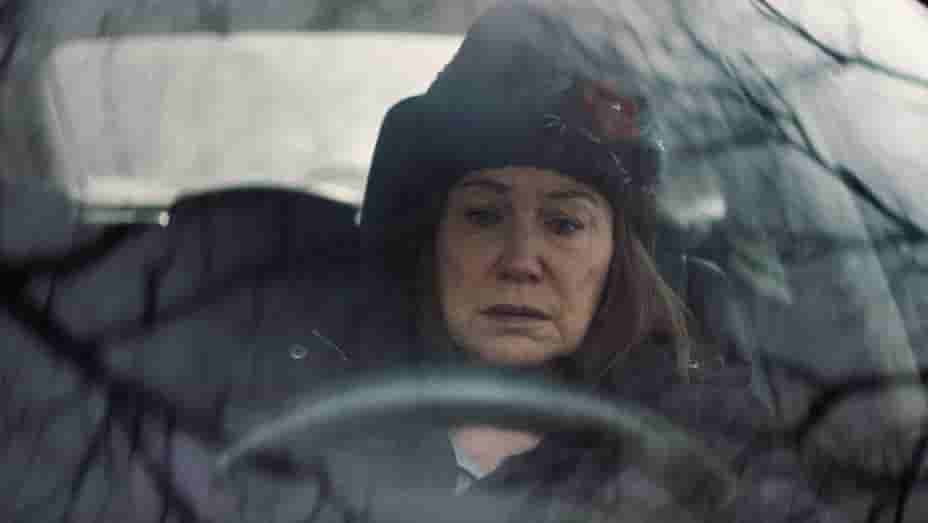
It’s not until well into Diane that we see our eponymous heroine (Mary Kay Place) in her own home. Mostly, the film consists of scene after scene of her helping others — her sister who’s in the hospital with cancer, her drug addicted son (Jake Lacy), the homeless people in the soup kitchen where she works — each scene bookended with simple footage of her driving from place to place. The rhythm of Diane’s life is established: a steady but exhausting one that leaves not a beat for her to relax and think about herself. This seemingly simple structure builds almost imperceptibly into a larger thesis statement on death and living with guilt.
Despite the strictly naturalistic register of most of the film, there are a few moments of near-surreal beauty, such as a Diane dancing mournfully by herself in a bar, or an intense dream sequence that heartbreakingly recalls how life felt much more joyful and immediate in Diane’s youth.
Diane’s main form of self-expression is the poetry she begins to write. We see copies of Emily Dickinson’s work lying on her bedside table, which draws a line between these two women with rich inner lives, but tragically, no healthy outlet. Kay Place’s performance is the brilliant centre of it all, making visible the inner life of such a quiet woman.
Pause (dir. Tonia Mishiali)
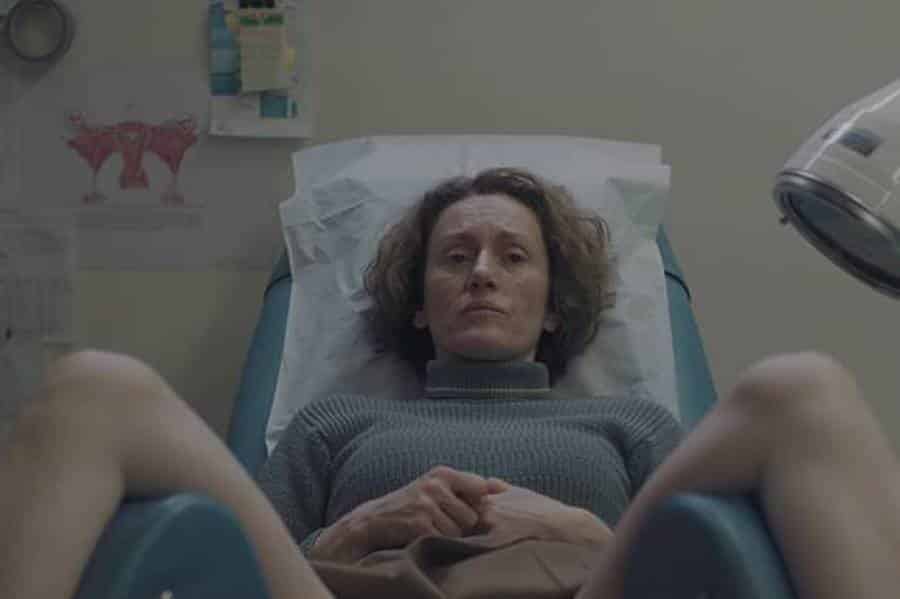
In this film, menopause doesn’t put a stop to anything. Instead, it’s the triggering event that presses play on Elpida’s (Stella Fyrogeni) life, which has been on pause for decades, ever since her arranged marriage with her brutish, uncaring husband, Costas (Andreas Vasileiou).
Pause is dark, dry, and completely ruthless when it comes to admonishing the patriarchal structures that keep women down, particularly in the film’s Cyprus setting. Costas is wretched to his wife, almost never looking her in the eye and regularly taking away her possessions without asking. But because Elpida is completely financially dependent on Costas, leaving him is hardly an option, although she fantasises about it daily. Repeatedly, we see her nervously ask him for that day’s pocket money, which he leaves in a pile on the tabletop before he goes to work. He shoots her a dirty look before he shuts the door, just for being ‘greedy’ enough to want a haircut or extra groceries. Elpida’s only chance at freedom is that her husband might die and leave her an inheritance.
As the symptoms of menopause progress, Elpida’s fantasies of escape start to come to life in small acts of rebellion. Chiefly, she makes her husband sick by daily slipping him the medication meant for her menopause. It’s her only way to exercise some control over him. Director Mishiali chooses an ending that is somewhat optimistic, but undercut by the knowledge that it’s only through extreme, dangerous action or chance circumstance that women like Elpida can escape from the systems that oppresses them.
We are the Weirdos (dir. various)
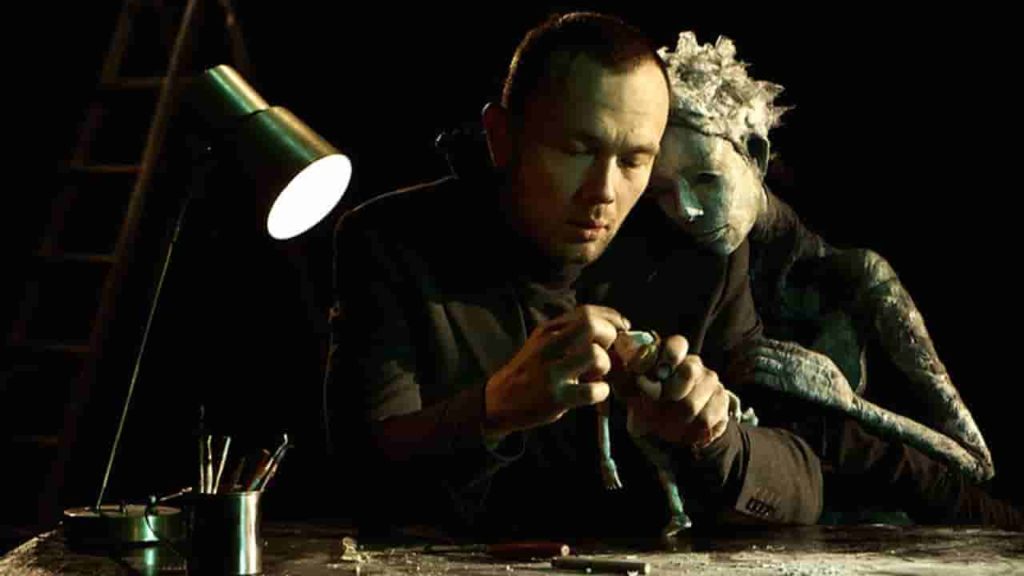
Like any anthology, We are the Weirdos — a collection of genre shorts directed by women — is a mixed bag. However, as a collection that’s intended to get the viewer excited about a new generation of voices, it succeeds. A few are duds, but there are examples of narrative ingenuity, visual brilliance, astounding practical effects, and haunting atmosphere throughout.
Two shorts stand out of the group: first is Hair Wolf (dir. Mariama Diallo), a funny and unnerving satire of the cultural appropriation involved in the way white women treat black women’s hair. Beach Rats’ Madeleine Weinstein is hilarious as the monster in this horror film: a dead-behind-the-eyes white girl who shows up to a hair salon run by black women and demands braids. You may also recognise Taliah Webster, who stood out in 2017’s Good Time as the teenager who gets caught up in Robert Pattinson’s crimes.
Puppet Master (dir. Hanna Bergholm) was the most accomplished, using practical effects, puppets, and terrifying sets to create nightmare fuel. Bergholm leaves you in a middle ground of scared and awed, with a film that is both beautiful and incredibly unnerving. It’s a wordless film, following a meek woman who is captured and turned into a puppet by a mysterious man in his dark warehouse. The strange, spindly way the puppet’s limbs move is, in itself, a masterful example of spine-tingling filmmaking. Bergholm could do great things yet.
